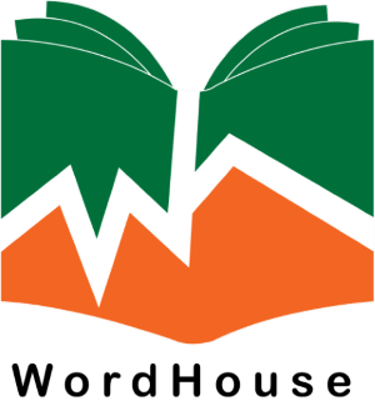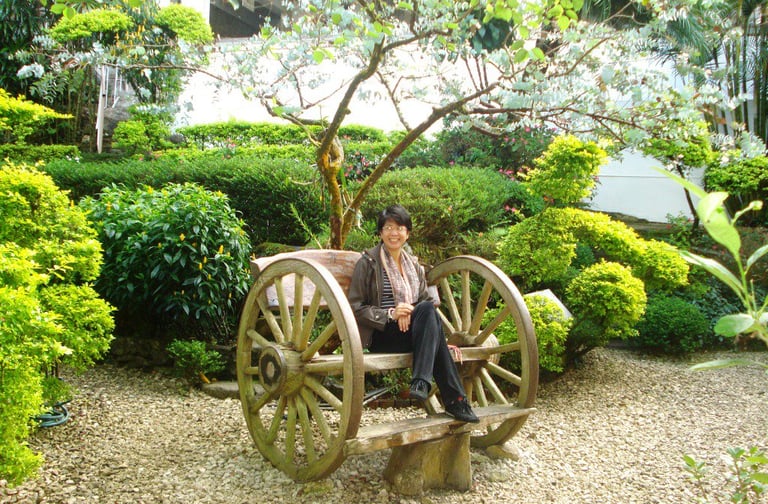What About Me: The Self Beyond the Profile
FREELANCEBEING AT WORDHOUSE


What About Me: How We Curate the Self
Every digital platform asks the same thing: “Tell us about yourself.” Whether it’s a social media bio, an author profile, a gaming app, or a job application, we’re invited, sometimes required, to summarize who we are. But when we write our “About Me,” how often do we stop and ask: What about me? What’s at stake in this little performance?
Every “About Me” is a version, not a lie, but a mirror image of an enhanced self. On LinkedIn, I might be the efficient book editor. On Instagram, the family-oriented friend, the warm, unassuming auntie. On a blog like this? Academic, reflective, a little meta.
None of these are false, yet none tell the whole story either. Each one appears within a frame, a built-in gift box designed to please its intended recipients. It’s not a bad system, this digital life of equivalences. But in this frame, I can’t afford a mismatch. The version of myself I craft must fit neatly within that box of expectations, with just enough care for how I’d like to appear.
The Pressure to Perform
The “About Me” isn’t just language but performance. It’s self-marketing. And this carries emotional weight. When the bio becomes more recognizable than the person writing it, something essential gets lost. We begin to ask not “Who am I?” but “Who do they think I am?” and then, “Can I become a better version of that?”
The gap between the inner self and the projected self widens as we keep acting a life, trying to stay in character. Once we hesitate to share something that doesn’t align with our established identity, the “About Me” stagnates, becoming a formula film, devoid of mystery.
The question “What about me?” can no longer hold the evolving self. As we keep formulating ourselves, on the page or on a platform, we risk turning into generic descriptions of our being. And in time, as we become data, we blur the self into oblivion.
Is There Value in Self-Narration
This is not a rant against bios or profiles. The “About Me” can be powerful, especially for people whose stories have often been told by others. Choosing how to describe ourselves can be an act of reclaiming voice. It can show how we resist stereotypes, assert our values, and define our place in the world.
For someone marginalized, erased, or misunderstood, a well-written “About Me” becomes a declaration, a political stand. Bold statements like “I’m queer,” “I’m disabled,” “I’m an artist,” “I’m from this tribe” do more than describe; they demand inclusion and representation.
And yet, even the most empowering self-descriptions require upkeep. Any attempt to freeze identity in a single moment will struggle to keep pace with who we are becoming, in the long, unfolding series of our own narrative.
In Praise of the Unfinished Self
If I can’t admit that I'm still figuring things out, that “About Me” is at best a rough draft, I will end up relying on a platform for stability. This stability depends on anchors outside of myself, and it risks turning me into a stranger in my own space.
Online, platforms don’t love ambiguity. Every bio has a character limit because the goal is to please those who skim. The pressure to be sharp, clear, and memorable forces us to count adjectives, to shape ourselves according to algorithmic desire rather than our own definition. Yet as persons, we will always remain blurry, inconsistent. We change. We contradict ourselves. Is there an “About Me” that can make space for all of that? I doubt it.
What about me, then, if I refuse to perform on a platform? Which parts of myself should fit inside that profile box? Which self should I let go, trusting that the rest of me need not be unveiled?
The “About Me” heading is, at best, my permission to hold up a snapshot that may look permanent, yet remains only an image. I cannot make the real “About Me” fully vulnerable with everyone watching. Every connection I form through this link to self-definition will be unstable, so it is necessary to keep most of my silences and secrets. An “About Me” is simply an assertion: that I’m here, still on my way, unfinished.


